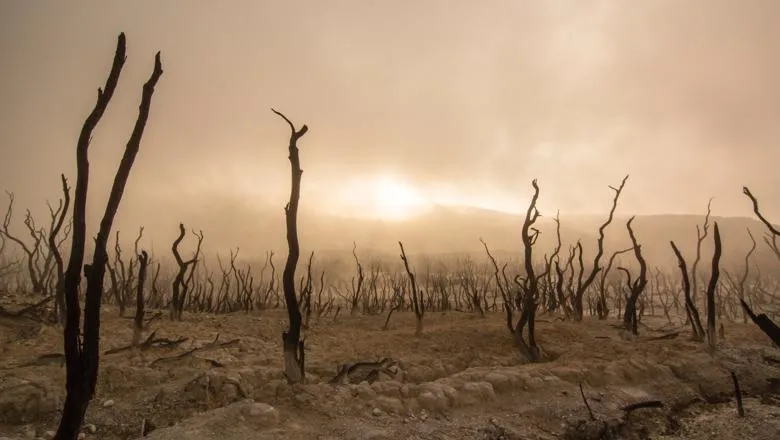15 April 2019
Waiting on a sunny day
Despite great progress, renewables alone will not prevent climate catastrophe

The expansion of renewable energy generation over the last decade has exceeded all expectations. But climate breakdown cannot be halted by renewables alone and its impacts are already with us, which is driving radical protests by new social movements like Extinction Rebellion and the school climate strikers.
"It's about cutting emissions, moving to renewables as soon as possible, but it's also about lifestyle choices, cutting down on meat consumption, planting more trees. All these things have to happen at the same time - it's not good enough to do one after another," said Simon Chin-Yee, author of the new report Climate Change & Human Security and Research Associate European Centre for Energy & Resource Security (EUCERS) at King's College London.
The report features case studies of extreme weather, sea level rises, conflict, cross-border migration and threat multiplication, which point the way to everyone's future unless immediate action is taken. These dire consequences mean the green movement considering previously taboo options like nuclear power. Friedrich Pfluger, EUCERS director speaking at the centre's 'Pathways To Climate Security' event on 1 April, pointed out that Greta Thunberg, voice of the student climate strikers movement has advocated this option. A future 'Pathways' event will consider the viability of nuclear power as a solution to climate change.
Solar energy industry leader Thomas Krupke stated his confidence in renewables, predicting that "Over the next 10-15 years costs for renewables will half again," while also pointing out the considerable room for improving energy efficiency. "Efficiency is the easiest thing to change."
But energy demand, especially for electricity (partly driven by digitisation), is rising, and outstripping efficiency and capacity gains. Peter Umbach, Research Director of EUCERS, argued that China and India will decide the extent to which climate change can be halted. A warning sign is that at the EUCERS summit in January 2017 it was reported that China had ceased the construction of 100 coal plants - the building of 50 of these has now been restarted.
Time is running out and as Dr Chin-Yee emphasised, the people already affected, from Pacific Islanders to NIgerian farmers and herdsmen, are fully aware of what this means. In Europe and the US, a shift to more radical, immediate solutions building on the gradual progress already made in energy diversification is essential.
Read the full Climate Change & Human Security report produced with the support of the Konrad Adenauer Foundation.
Listen to the Pathways To Climate Security event in full.
